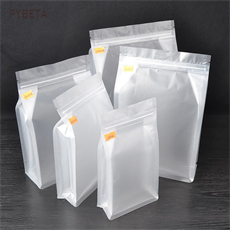- Reduced Plastic Pollution: Biodegradable bags break down more readily in the environment than traditional plastic bags. This means they are less likely to persist as litter, cluttering landscapes, clogging waterways, and harming wildlife. Choosing biodegradable bags helps reduce the visual and ecological impact of plastic pollution.
- Renewable Resources: Many biodegradable bags are made from renewable resources, such as cornstarch, sugarcane, or plant-based polymers. Using renewable resources reduces dependence on finite fossil fuels and minimizes the carbon footprint associated with bag production.
- Lower Carbon Emissions: The production of traditional plastic bags involves the extraction and processing of fossil fuels, leading to significant greenhouse gas emissions. Biodegradable bags made from plant-based materials typically have a lower carbon footprint, contributing to a reduction in overall emissions.
- Support for Sustainable Practices: By choosing biodegradable bags, consumers and businesses promote sustainable practices. It sends a message that environmental responsibility is a priority, encouraging more eco-friendly choices in daily life.
- Regulatory Compliance: In regions where regulations and standards for reducing plastic waste are in place, biodegradable bags can help individuals and businesses comply with legal requirements. These regulations often incentivize the use of biodegradable materials.
- Waste Reduction: Biodegradable bags can be processed in industrial composting facilities, where they break down efficiently. This diversion from landfills can reduce the strain on waste management systems and contribute to waste reduction goals.
- Circular Economy: Biodegradable materials can be integrated into a circular economy model, where products and materials are designed to be reused, recycled, or composted. This aligns with the principles of sustainability and resource efficiency.
- Consumer Awareness: The availability of biodegradable bags can raise consumer awareness about the environmental impact of single-use plastics. It encourages people to think more critically about their consumption patterns and make choices that align with environmental sustainability.
It’s important to note that while biodegradable bags offer environmental benefits, their effectiveness depends on proper disposal and environmental conditions. These bags must be disposed of correctly to ensure they break down as intended. Additionally, not all biodegradable materials are created equal, so it’s important to choose products that meet recognized biodegradability standards to ensure their environmental benefits are realized.
In summary, biodegradable bags are considered a greener choice because they address some of the key environmental concerns associated with traditional plastic bags. By choosing biodegradable options and supporting responsible disposal practices, individuals and businesses can contribute to a more sustainable and eco-friendly future.














